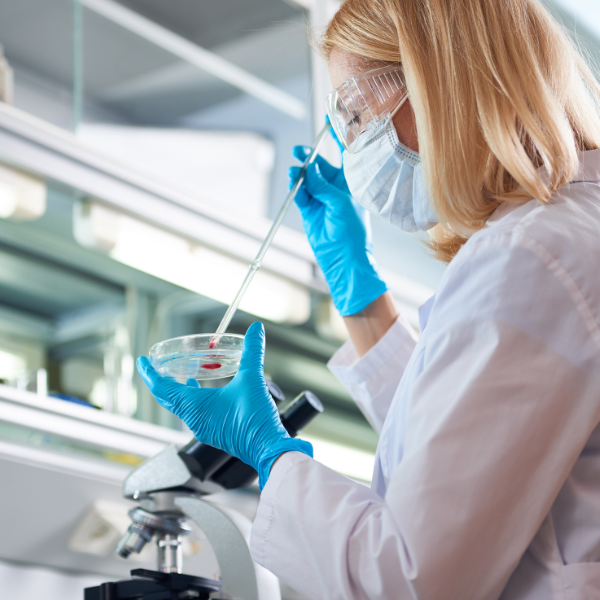An increasingly fundamental role in healthcare and assistance landscape, and beyond, is the one of Biomedical Laboratory Technician. Often not very familiar to the general public, this healthcare professional is responsible for biotechnological diagnostic analyses. This role is delicate yet indispensable, not only within the realm of medical practice but also across various branches of medical-scientific research. A Bachelor’s degree in Biomedical Laboratory Techniques, therefore, opens up numerous career opportunities and can pave the way for further studies through first-level master’s programmes and advanced degrees.
At UniCamillus, in particular, the three-year Bachelor’s Degree programme in Biomedical Laboratory Techniques is designed to provide students with a strong foundation in scientific principles and a comprehensive theoretical-practical preparation. It also focuses on developing students’ interpersonal skills. The educational journey places special emphasis on equipping graduates with the ability to effectively perform analytical procedures and collaborate with diverse healthcare professionals in group medical activities.
Graduates from the International Medical University of Rome‘s Biomedical Laboratory Techniques programme acquire a broad spectrum of technical competencies spanning various fields. From biochemistry to medical genetics, transfusion medicine to immunology, hematology, and much more. A Biomedical Laboratory Technician must be capable to conduct analyses on biological or environmental samples. Additionally, they are engaged in scientific research experiments and assume responsibility for the technical validation of conducted analyses and the resulting outcomes. Hence, they emerge as versatile professionals in the realms of science, research, and medicine, operating autonomously alongside physicians. Moreover, their knowledge is in constant evolution due to the transformative impact of new technologies on the medical field.
UniCamillus’ programme is structured with traditional lectures complemented by seminars and numerous hands-on activities in the UniLabs laboratories, inaugurated a year ago. Alongside mandatory internship hours throughout the three years of study (as per ministerial guidelines), students, organized in small groups, participate in interactive educational activities led by a mentor. The goal is to facilitate the acquisition of specific knowledge, skills, and behavioral models for the profession. Learning occurs through direct and personal engagement in practical exercises and/or rotations in clinical departments, outpatient clinics, local facilities, and research laboratories. This teaching methodology is highly regarded by students themselves, as evidenced by this year’s Almalaurea survey data, highlighting high satisfaction with their university experience.

